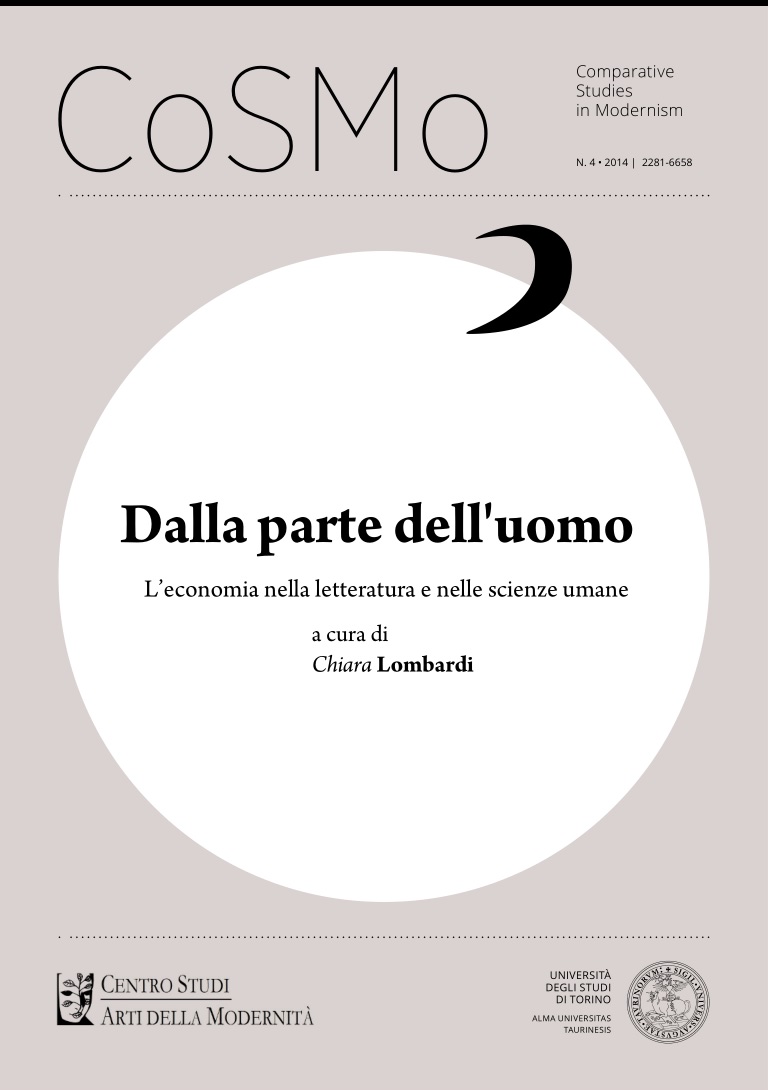"L'economia insegna a scegliere". Matrimonio e tradimento come metafora economica da Machiavelli a Lloyd Roth e Alvin Shapley
DOI:
https://doi.org/10.13135/2281-6658/592Parole chiave:
Comparative Literature, Machiavelli (Mandragola), Economics, Theory of GamesAbstract
The essay aims at analyzing the relationships between literature and economy in Machiavelli’s Mandragola, focusing not simply on the thematic level, but specifically on the concepts of choice and desire as conceived by the logic of the first capitalism. Both these concepts will later support the economic thought of Paretus and the modern theory of games as well, this latter applying to various fields such as psychology, sociology, ethics etc. Starting from these premises, this contribution will try to demonstrate how Machiavelli’s Mandragola plotted the notions of choice and desire as the principal strengths of modern economic rationality. The narrative expedient of the mandragola, indeed, represents the winning means of reaching what we may call, though anachronistically, a Nash equilibrium: every character, without exception, obtains his pay-off. This equilibrium concerns marriage, but at the same time is achieved through marriage’s negation (that is through the betrayal), thus implying the representation of dynamics and power relations which complicate, discuss and reallocate the initial conditions of stability.Downloads
I dati di download non sono ancora disponibili.
##submission.downloads##
Pubblicato
2014-06-29
Fascicolo
Sezione
Focus
Licenza
Gli autori mantengono i diritti sulla loro opera e cedono alla rivista il diritto di prima pubblicazione dell'opera, contemporaneamente licenziata sotto una Licenza Creative Commons - Attribuzione che permette ad altri di condividere l'opera indicando la paternità intellettuale e la prima pubblicazione su questa rivista.







